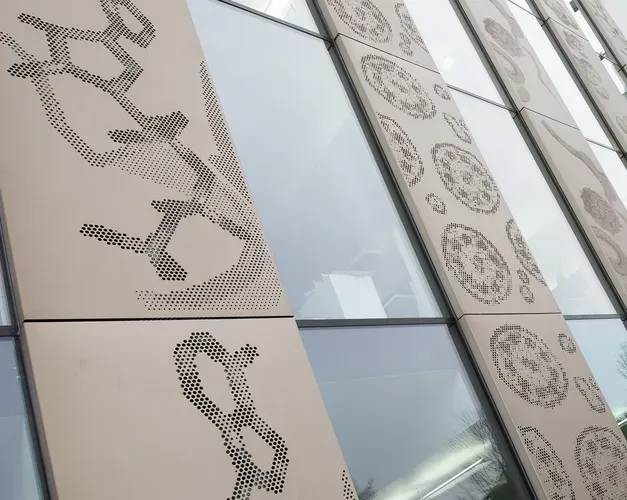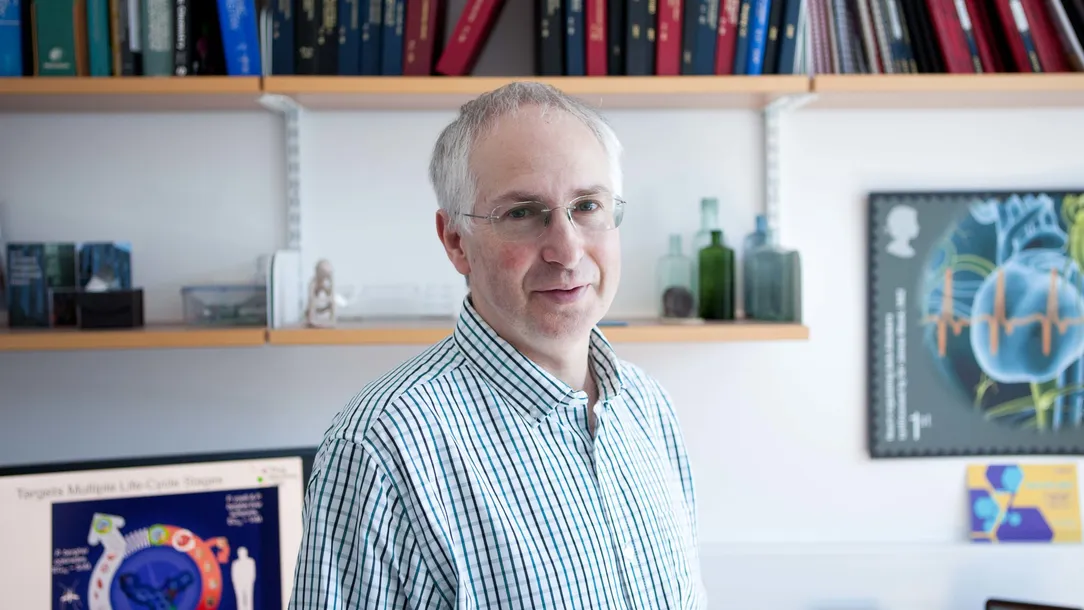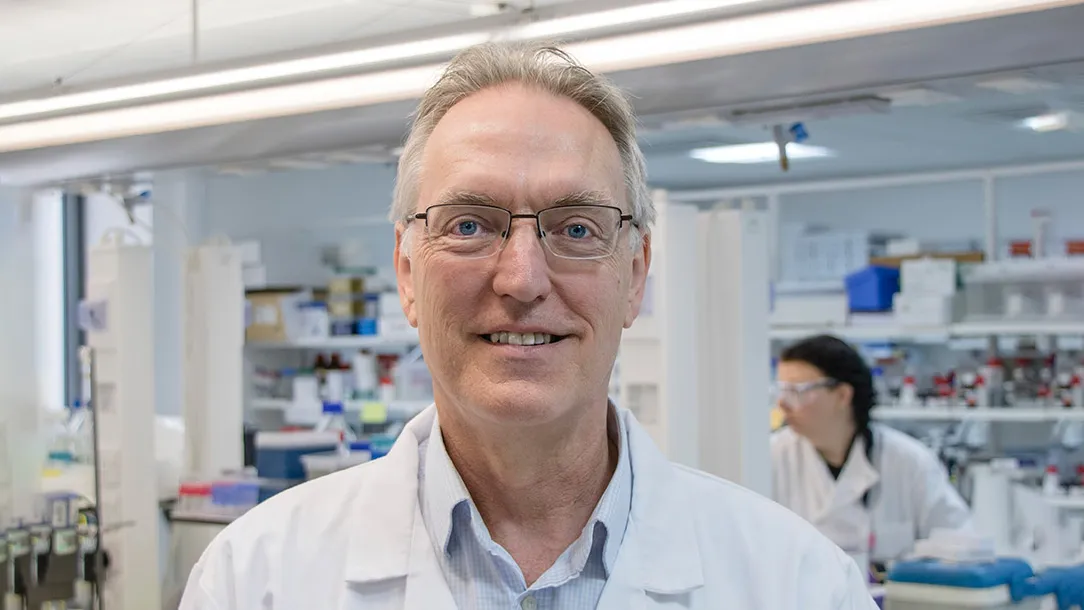Feature
Drug Discovery Unit: medicines of tomorrow
Expertise from the biopharmaceutical industry combined with a powerful academic environment and outstanding facilities has created a unique environment for industry-ready drug discovery research
Published on 23 December 2020

The Lancet
The background of the DDU
Our Drug Discovery Unit (DDU) is widely recognised as one of the world’s premier drug discovery centres of excellence. The DDU, based in the University’s School of Life Sciences was established to help address the unmet medical needs for infectious diseases of low and middle-income countries which kill millions of people every year and threaten almost half of the world’s population – the half that can least afford it.
For these diseases, there is a need for new, safe and efficacious medicines, not least to stay one step ahead of the rising tide of drug-resistance prevalent in diseases like tuberculosis (TB) and malaria.
Professor Sir Mike Ferguson, co-founder of the Drug Discovery Unit with Professor Alan Fairlamb, said, "When we decided to set up the Unit we were widely seen as going out on a limb in trying to establish a 'biotech-style’ drug discovery capability within an academic setting.
"There was, frankly, quite a bit of scepticism but something innovative needed to be done if we were to be serious about tackling these diseases." Over the last 13 years the DDU has already made a significant contribution to treating these diseases, proving the vision was correct. Significant breakthroughs include the discovery of a novel anti-malarial compound now in clinical trials with Merck and Medicines for Malaria Venture (MMV) and a new potential treatment for leishmaniasis in trials with GSK and the Drugs for Neglected Diseases Initiative (DNDi).

Ian Gilbert, Head of Chemistry
The Wellcome Centre for Anti-Infectives Research (WCAIR)
Based on Dundee’s success, in April 2017 the Wellcome Trust invested £13.6 million to create the Wellcome Centre for Anti-Infectives Research (WCAIR). WCAIR integrates expertise in parasitology, modern drug discovery methods and drug mode of action to create a continuum of innovation from discovery sciences to candidate drugs. WCAIR recognises that science needs to keep moving forward to be successful. It focuses on developing new innovative methodologies and technologies to improve drug discovery.
Professor Paul Wyatt, Head of the Drug Discovery Unit and WCAIR Director, said, "We anticipate that our research and development over the next decade will generate a legacy of new therapeutics, based upon improved drug discovery approaches that will impact patients and benefit the wider scientific and medical communities. The great thing about putting together all the technologies needed to make new medicines for tropical diseases is that the same expertise and infrastructure can also support the 'translation’ of innovative discovery science in areas closer to home, including inflammation, skin diseases, cancer and Alzheimer’s disease."

Professor Paul Wyatt, Head of the Drug Discovery Unit and WCAIR Director
The DDU Innovative Targets Portfolio
The DDU Innovative Targets Portfolio group does exactly that by collaborating with leading scientists from universities around the world, to convert ideas for new therapies into medicine prototypes. These can then be partnered with the pharmaceutical industry or used as the basis of spin-out companies to take them closer to candidate medicines and clinical trials. Intellectual property licensed from Dundee is helping to support the development of both Scottish biotech such as IOmet Pharma (acquired by Merck in 2016) and international biotech such as Germany’s HepaRegenix GmbH, and Canadian-based Pacylex Inc and Corbin Therapeutics. Projects from this portfolio have also been partnered with GSK, Pfizer and AstraZeneca.
Two recent and notable successes are multi-year funded partnerships looking to develop effective medicines to treat neurodegenerative diseases. The first is a collaboration between the DDU, the Medical Research Centre Laboratory for Molecular Biology, the University of Cambridge and Japanese pharmaceutical giant Takeda to develop possible new therapeutic treatments for tau pathology, an underlying feature in several forms of neurodegeneration including Alzheimer’s disease. The second is looking to treat Parkinson’s Disease and involves the South Korean company Bukwang Pharmaceuticals and the University of Oxford.
The success of the Drug Discovery Unit is attributable not only to its people but to its core ethos of collaboration. The Unit forms collegiate and active partnerships with pharmaceutical and biotech companies, Product Development Partnerships (PDPs), academic groups and funding bodies – public, private and charitable.
Something very special is taking place in Dundee. A unique mix of a wide range of skills and expertise, from academia and industry, is making the translation of life sciences research into therapeutic applications efficient and successful.
Press Office, University of Dundee
[email protected]